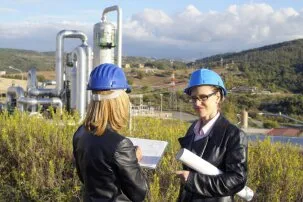Environmental engineers are professionals who work to protect the environment and public health by using their expertise in engineering, biology, chemistry, and other sciences. They develop and implement solutions to environmental problems, such as pollution, waste management, and water and air quality. Their goal is to ensure that human activities have minimal impact on the environment, and that natural resources are used in a sustainable and responsible way.
Environmental engineers often work on a variety of projects, including designing and implementing systems to treat and remove pollutants from water and air, developing strategies to minimize the environmental impact of construction and industrial processes, and creating sustainable waste management plans. They also work on projects related to renewable energy, climate change mitigation, and environmental restoration.
In addition to their technical skills, environmental engineers also need to have a strong understanding of environmental regulations and policies, as they often work with government agencies and other stakeholders to ensure that their projects comply with relevant laws and standards. They may also be involved in conducting environmental impact assessments, providing expert testimony in legal proceedings, and educating the public about environmental issues.
Environmental engineers may work in a variety of settings, including consulting firms, government agencies, research institutions, and industry. They may also work in the field, conducting environmental monitoring and assessments, or in an office setting, designing and analyzing environmental systems and processes.
Overall, environmental engineers play a crucial role in protecting the environment and public health, and their work is essential for creating a sustainable and healthy future for our planet.

